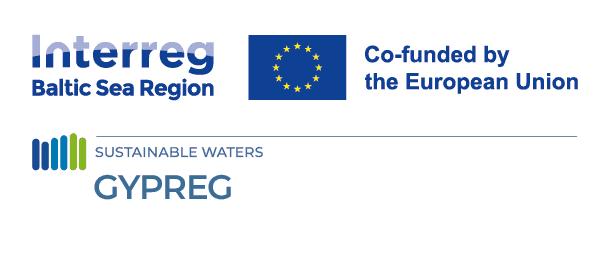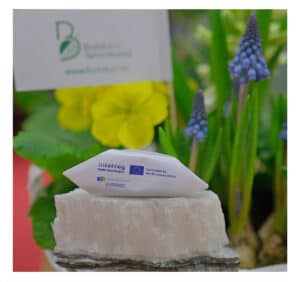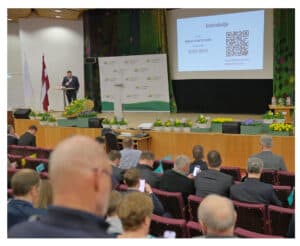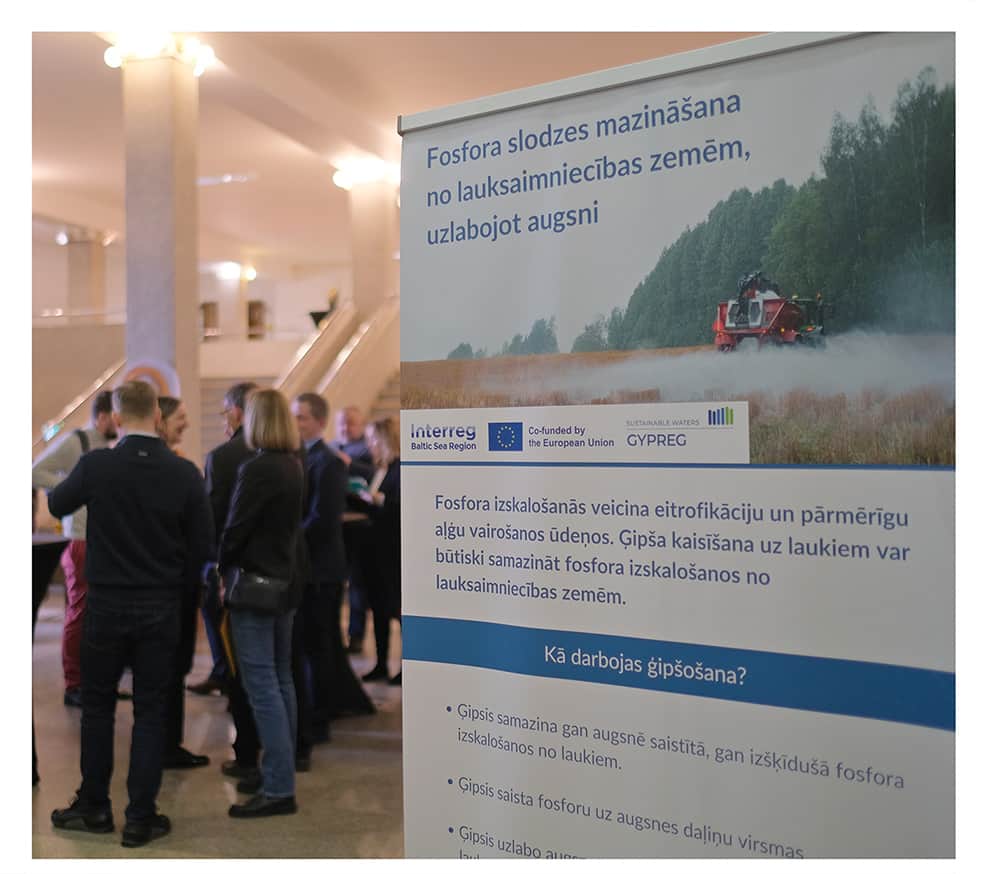
Over 70% of Latvian farmers are eager to pilot gypsum method
26 March 2024
Survey reveals farmers’ willingness to participate in GYPREG initiative

© Inga Retike
At the Annual ZSA Congress, 15 March 2024, in Bulduri, the Latvian Institute of Aquatic Ecology and Farmers’ Parliament informed nearly 100 Latvian farmers about GYPREG project activities. Around 40 farmers later engaged in discussions on the practical application of gypsum to reduce phosphorous runoff from agricultural lands. To understand to what degree the agricultural community is familiar with gypsum as a soil treatment, we conducted a short online survey. The survey revealed that about 60% of the farmers were unfamiliar with gypsum amendments, yet 70% expressed willingness to experiment with gypsum on their lands. The interest in the GYPREG project’s outcomes was overwhelmingly positive. The farmers highlighted a strong need for additional scientific research and educational events, like seminars and workshops, to promote and support farmers in adopting gypsum application practices in Latvia.
Latvian ministry of agriculture addresses farmers’ concerns

© Inga Retike
Keynote speeches at the ZSA Congress included insights from Latvian Agriculture Minister Armands Krauze, who addressed farmers’ concerns, and SKDS Director Arnis Kaktiņš, who shared recent survey results indicating that 87% of Latvians consider agriculture as essential to the national economy and export. Additionally, Finnish farmer Max Schulman discussed global grain market trends, focusing on factors affecting grain prices worldwide – climate change, economic, and political factors – and outlined potential future opportunities and challenges for the European Union and particularly the Baltic Sea region grain producers.

© Inga Retike





